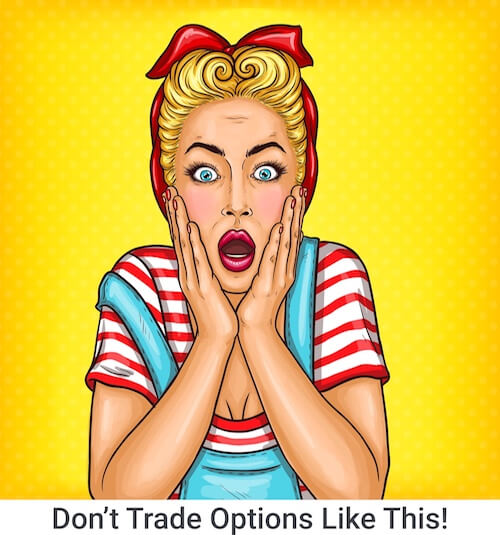If you follow my gospel you know I preach trading strategies that remove all emotion. Let’s face it—the stock market is random, and accepting that randomness is the first step to becoming a profitable trader. No one can predict the next tick in the market. I believe you can predict the outcome of many trades in a row, but you can’t predict the outcome of any one trade. Attempting to trade a strategy that requires you to decide whether to enter and exit a trade and the size of the trade, it’s inevitable that your emotions will creep in. And, I submit, there is no upside to emotional trading—you are bound to slip up.
How to Prevent Emotional Trading
The best way to prevent emotional trading is to choose strategies based on probabilities. For example, during the period from 1993 to 2014 I discovered that 11% of the time the S&P 500 dropped more than 5% in any 30-day period. So why not design a trading strategy that profits if the S&P 500 does not drop 5% in any 30-day period? I trade put credit spreads on the SPY and I know, based on past performance, I will have winning trades 89% of the time.

I know what you are thinking: if the market is so random how can you rely on S&P 500 statistics? A fundamental reason for this long-term trend is that the U.S. stock market is the primary place people invest money for long-term growth (think retirement funds). New money tends to flow into the market consistently because most people have X dollars taken out of their paycheck every month for retirement investing. It is a supply and demand dynamic—as long as new money flows in, the market should have a bias not to tank.
Am I being emotional about the foundation of my own trading strategy (the S&P 500 dropping over a 30-day period)? It’s true that I must apply some judgment to my strategy, and where there is judgement there is emotion. So I concede I can’t avoid emotional trading altogether, but I make a decision after hours of research and backtesting and I do not revisit the decision unless my strategy starts to fail. What I want is to avoid day-to-day, in-the-moment emotional trading decisions.
Check Your Emotions at the Door
As I said, I trade put credit spreads on the SPY and I expect to lose money 11% of the time. And when trades go against me I lose money in a big way. In general on a one lot trade I make around $23 before commissions—but if the trade goes against me I can lose up to $177. Because I need 8 winning trades to make up for one loss, I need to place as many of these trades as possible to have a nice yearly return. I need to trust my trading strategy and place trades regardless of how scary the market is. Every so often the market tanks for good reason (think the 2001 tech crash or the 2008 real estate crash). During these times it’s tempting to sit on the sidelines, but my strategy obligates me to check my emotions at the door and continue to trade through wild times. And over time I have learned that wild times can be some of the best times to trade.
When I design a trading strategy I make sure it does not rely on emotional trading. I base my strategy on a foundation validated through backtesting. Then I execute my strategy over and over like a robot. Sometimes I even try to automate it. Because my trading decisions require no in-the-moment judgement there is no room for emotions to skew my returns.
Related Topics: Emotional Trading


